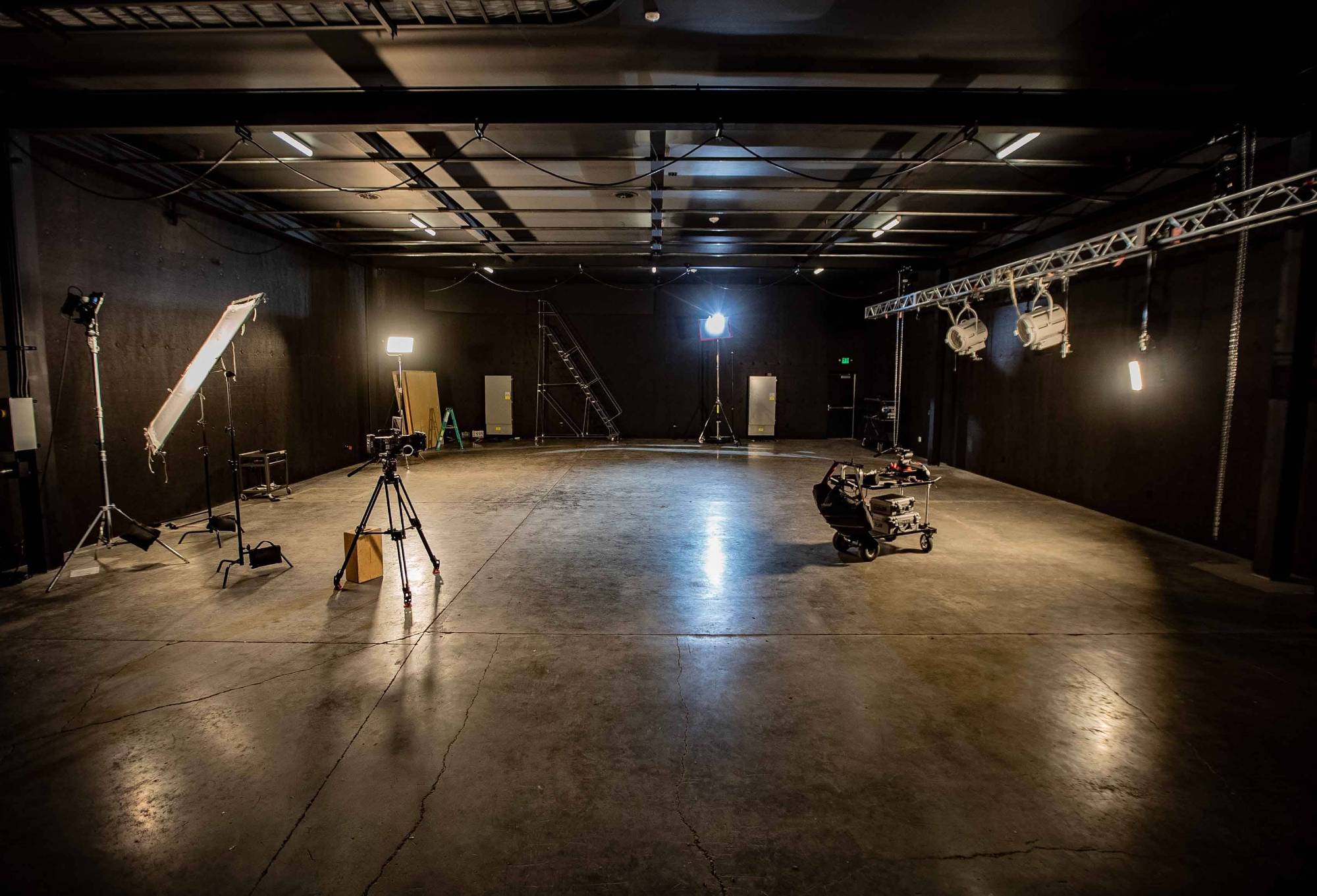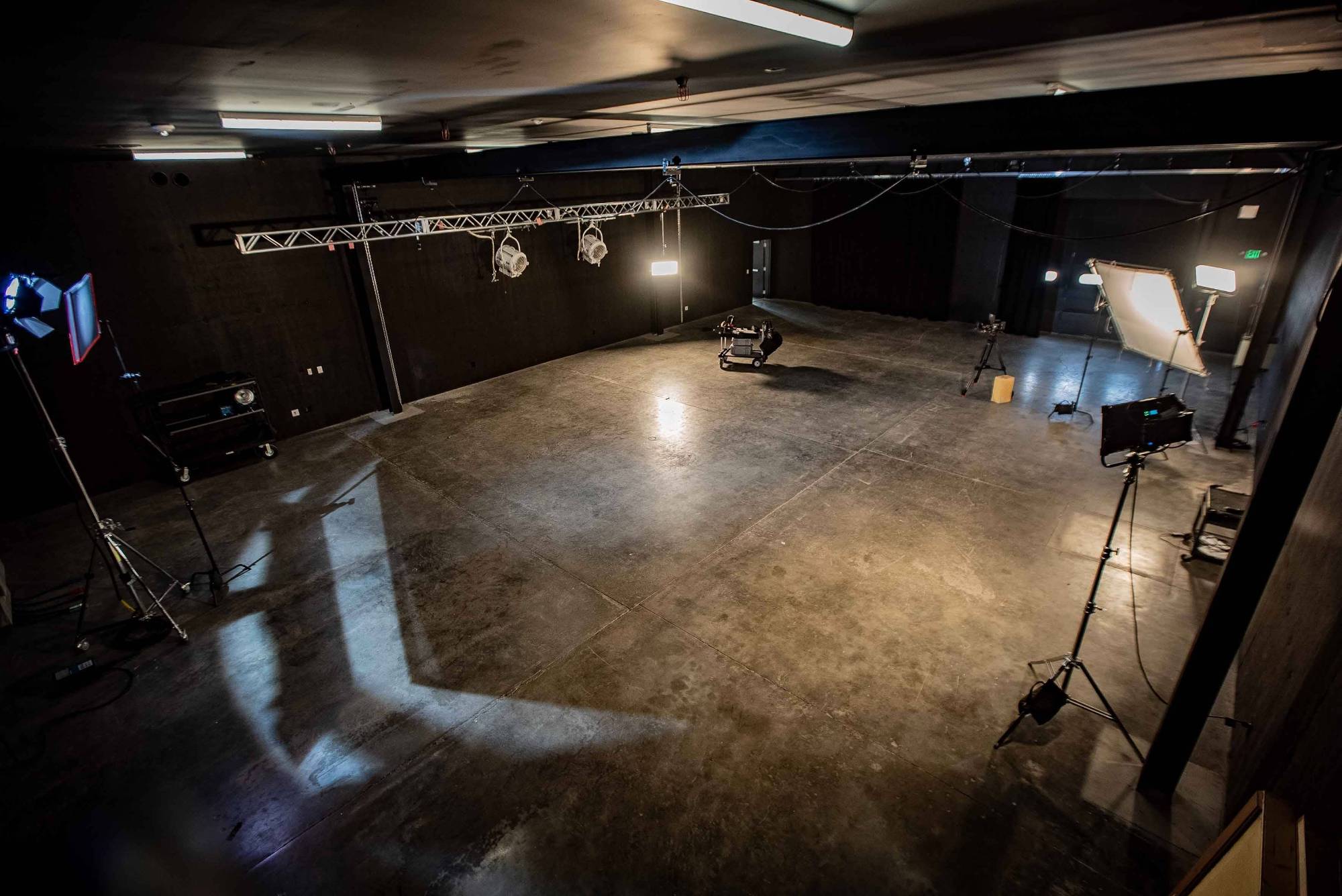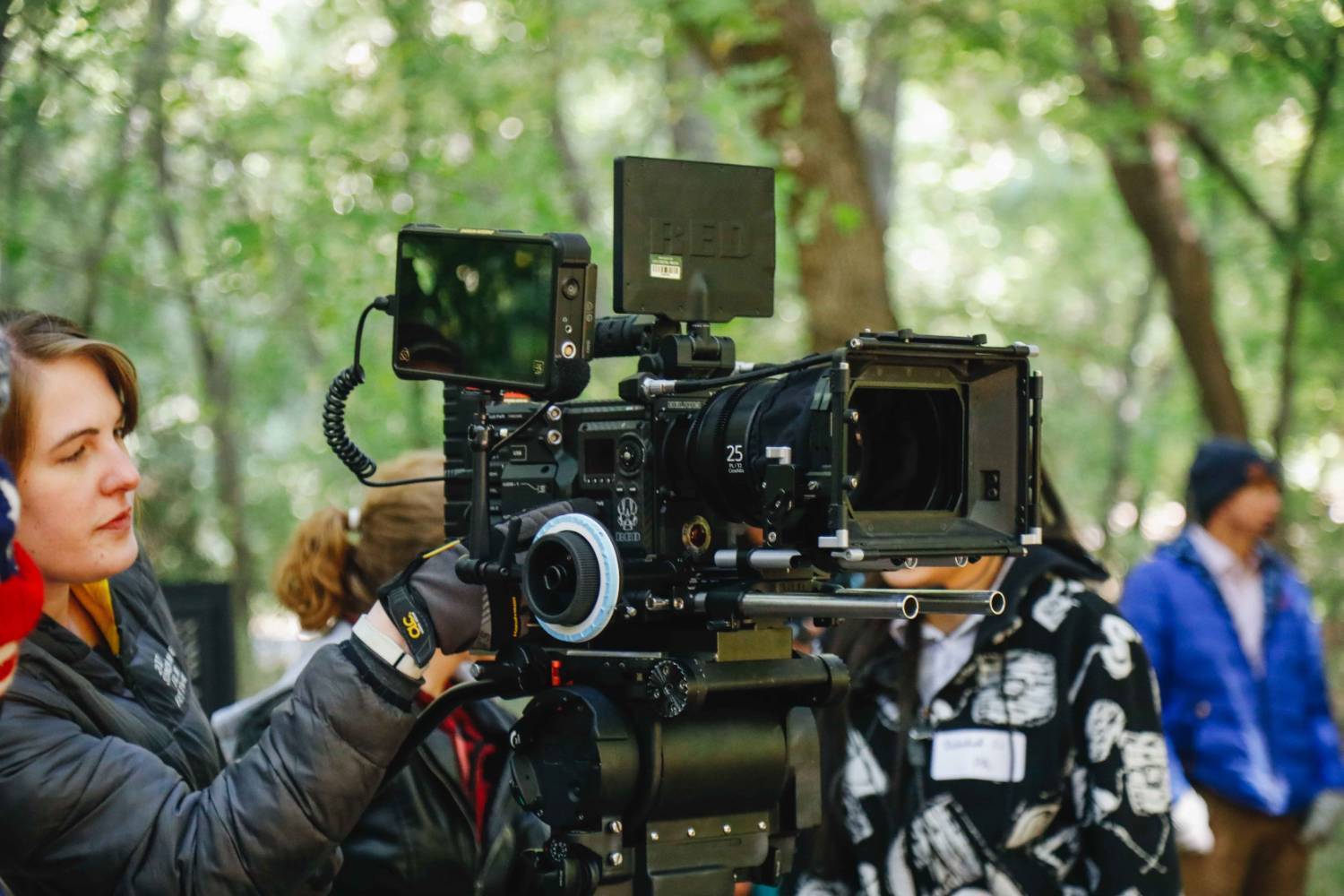The BS degree, AAS degree train students in the development, production and post-production process of film & media content for a variety of platforms. Using a hands-on, practical approach, students learn the tools, equipment, technologies, software, and protocols that are used on film and television sets and post-production facilities, large and small, throughout the world. The curriculum focuses on creating character-driven stories and learning how to use emerging digital technologies to enhance storytelling. Advanced students can choose to focus their study on different skill sets within the Digital Cinema Production process including Directing for Digital Cinema, Writing for Digital Cinema, Cinematography, Producing for fiction and non-fiction productions and Post-Production.
Writing for Digital Cinema
UVU’s Writing for Digital Cinema track emphasizes character driven work geared toward appealing to a wide audience. While writing for television and feature films is the main focus, new media such as VR experiences and interactive games are also potential explorations. Participants in this track must be passionate about telling stories, have great attention to detail, and be observers of life and the human condition.
Cinematography
UVU’s Cinematography track emphasizes telling visual stories through shot variation, lighting, depth, texture, color and camera movement. A great focus is placed on preparing students to work within camera, lighting or grip departments. Students practice on a wide variety of professional cameras and other gear. Students in this track should be passionate storytellers who are artistically driven with a love of photography and a good grasp on technology.
Directing for Digital Cinema
UVU’s Directing for Digital Cinema track emphasizes a combined classical approach to dramatic presentation, visually appealing cinematic language and thorough technical understanding. Students interested in this track of study will communicate well both verbally and visually, have a passion for storytelling and have an innate desire to share their voice.
Producing & Pre-MBA
UVU’s Digital Cinema Producing emphasis is a track that focuses on non fiction and narrative producing. You will learn the roles of both line producers, and creative producers and you become experienced running a variety of film and TV sets. In collaboration with UVU’s MBA program we offer qualifying students a 4+1 Bachelor’s of Science and MBA; students who follow the curriculum and achieve a high enough GPA can apply to the MBA program in their final year without taking the GRE, and in five years graduate with a Bachelor’s of Science in Digital Cinema Production along with an MBA . No other film school offers this same combination of opportunities. Progressing to the MBA is not a requirement. Students in this Track are passionate storytellers who love to be responsible for a story’s growth from an idea to a finished product, they love managing creative people and teams, and they develop skills to deliver a product to a world-wide audience.
Post-Production
UVU’s Post-Production track focuses on the various aspects of media content’s post-production process including editing, color and visual effects. Emphasis is placed on telling stories visually and learning the software and platforms that are used in post-houses throughout the world. Students in this track should be passionate storytellers, with a fascination for solving complex puzzles, and an interest in technology.
The first two years of the Digital Cinema Production program introduces students to a broad range of necessary skills, ideas, and technology required to be competitive in securing employment in the entertainment industry. This includes courses in directing, editing, screenwriting, cinematography, production, photography, and film history. With the successful completion of the programmed two-year curriculum, a student may receive their AAS degree in Digital Cinema Production(AAS Degree coming Fall 2020). This training and degree qualify them for work in entry-level jobs in the film industry in a variety of capacities.
At the end of their second-year, students pass through portfolio review process to assess their achievements and to guarantee they are prepared to advance to the more rigorous classes offered in the upper division courses. A thorough explanation of expectations for the portfolio review process are available on our web site.
The following two years allow students to specialize in a specific Recommended Track of Study. In these years, students go beyond entry-level work and establish the skills and training to become leaders in various specific fields within the filmed media industry.
There are six core required advanced classes: Cinematography II, Editing II, Storytelling for Digital Media II, Production Management, Producing I, and the Directing Workshop. In addition to these courses, students can focus their attention on one of five Recommended Tracks: 1) Directing for Digital Cinema; 2) Writing for Digital Media; 3) Post-Production; 4) Cinematography; and 5) Producing. Acceptance into the individual tracks may be limited and is determined by the quality of your portfolio review.
In the Senior Year, students complete a Capstone Senior Projectwhere they exhibit the culmination of their training and experience in a single project in their chosen track. More information about Senior Project expectations is found on our website. Upon successful completion of a Senior Capstone Project, students are eligible for a Bachelor of Science degree in Digital Cinema Production.
UVU’s Digital Cinema Production program is a hands-on program that focuses on learning the tools and equipment used on professional sets every day. In 2020 we opened new state-of-the-art production facilities, including a sound stage and Mac lab. Cameras and lighting equipment are available for students to check out from the time they enroll in their first DCP courses.

The DGM Cinema Stage is ready for action

A bird's eye view of the Cinema Stage

Hands on training with professional equipment
Have you been admitted to UVU? If no, please visit the UVU Admissions website.
To learn more schedule an appointment with one of our faculty, or one of the Digital Media department's advisors.
You can call 801-863-8648 and the admin can schedule a time for you to meet or talk with an advisor over the phone. The academic advisor office is located in CS 635.
Students may earn a Bachelors of Science in Digital Cinema Production, Associate of Applied Science, or a Certificate of Proficiency.
Digital Cinema Production
Prepares students for Digital Cinema related work. The program has been over ten years in the making. Created by filmmakers, a "hands-on" filmmaking experience integrates theory and engaged learning by using industry-standard scripting, pre-production, production, and post-production digital cinema techniques. Dollar for dollar, this is the best media training in the nation.
PRODUCTION
DIRECTION
STORYTELLING
CINEMATOGRAPHY
EDITING
POST-PRODUCTION
AAS Degree Advising Sheet
AAS Degree Flow Chart
AAS Degree Program Learning Outcomes
PRODUCTION
DIRECTION
STORYTELLING
CINEMATOGRAPHY
EDITING
POST-PRODUCTION
AAS Degree Catalog Information
BS Portfolio Requirements
BS Degree Advising Sheet
BS Digital Cinema Producing Flow Chart
BS Degree DCP Writing Flow Chart
BS Degree DCP Cinematography Flow Chart
BS Degree DCP Directing Flow Chart
BS Degree DCP Producing Flow Chart
BS Degree DCP Producing Pre-MBA Flow Chart
BS Degree DCP Post-Production Flow Chart
BS Degree Program Learning Outcomes
PRODUCTION
DIRECTION
STORYTELLING
CINEMATOGRAPHY
EDITING
POST-PRODUCTION
BS Degree Catalog Information